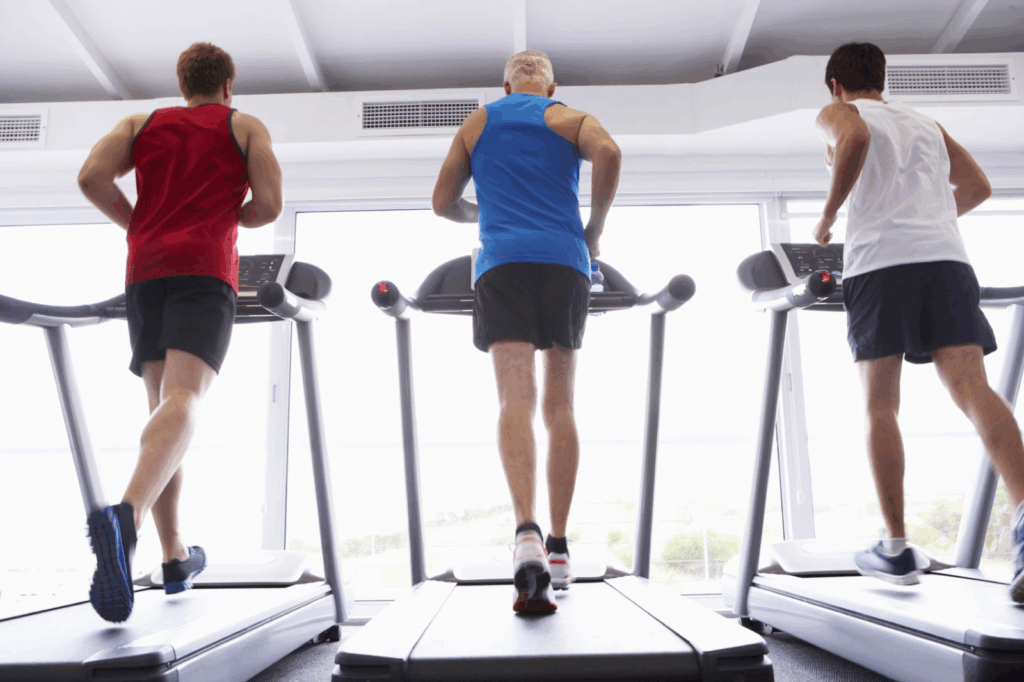Introduction
Staying focused in today’s fast-paced world is harder than ever. With constant emails, social media, and multitasking, many people struggle to concentrate on tasks for long periods. While productivity hacks like to-do lists and apps help, one of the most overlooked solutions is exercise. Regular physical activity not only improves your body but also significantly sharpens your mind.
Research shows that exercise stimulates the brain in ways that enhance attention, creativity, and memory. For busy professionals, students, and entrepreneurs, building exercise into the daily routine can be the missing link between feeling scattered and achieving peak performance. This article explores how exercise improves focus, why it matters for productivity, and how you can incorporate it into your lifestyle.

1. How Exercise Affects the Brain
Exercise increases blood flow, delivering oxygen and nutrients to the brain. This promotes the release of neurotransmitters such as dopamine and serotonin, which are linked to mood regulation and motivation. It also boosts brain-derived neurotrophic factor (BDNF), a protein that strengthens connections between brain cells and supports learning and memory.
Case example: A 2023 study from the University of Illinois found that participants who engaged in 30 minutes of aerobic exercise improved their concentration levels by 20% during work-related tasks compared to non-exercisers.
2. Exercise as a Natural Energy Booster
Fatigue is one of the biggest enemies of focus. Instead of reaching for another cup of coffee, a short workout can recharge both your body and mind. Even light activity like stretching or walking increases energy levels and combats mental exhaustion.
Real-life scenario: Office employees who took two short walking breaks each day reported feeling more alert in afternoon meetings compared to those who remained seated all day.
3. Exercise and Stress Reduction
Stress disrupts focus by overwhelming the brain with worry and tension. Exercise reduces cortisol levels, the body’s primary stress hormone, and triggers the release of endorphins that promote relaxation. Lower stress levels mean a clearer mind and sharper attention span.
Case example: A 2024 survey showed that workers who exercised three times per week experienced 30% less stress at work and reported higher productivity.
4. Improving Memory and Learning Capacity
Focus isn’t just about paying attention—it also involves retaining and applying information. Exercise improves hippocampal function, the part of the brain responsible for memory. Students and professionals who exercise regularly often find it easier to learn new skills and recall important details.
Research insight: A 2023 experiment found that college students who engaged in regular physical activity scored higher on memory and learning tests compared to sedentary peers.
5. Exercise Builds Discipline and Routine
The act of committing to regular exercise teaches discipline. This same discipline carries over into work and study habits. When you exercise consistently, you train your brain to handle routine, persistence, and delayed gratification—all of which boost productivity.
Pro tip: Starting your day with exercise can set the tone for a structured and focused workday.

6. Exercise and Creativity
Focus isn’t just about concentration; it also involves creative problem-solving. Walking, cycling, or jogging often leads to breakthroughs in thinking because physical activity allows the mind to wander and make connections.
Case example: Many entrepreneurs and writers report that their best ideas come during a run or walk, when their minds are free from distractions.
7. Short Workouts for Busy Schedules
One barrier people face is lack of time. But improving focus through exercise doesn’t require hours at the gym. Even 10–15 minutes of movement can make a difference. Examples include:
- A quick walk during lunch breaks
- Desk stretches between meetings
- A short yoga session in the morning
- High-intensity interval training (HIIT) for 10 minutes
Consistency is more important than duration.
8. The Role of Sleep and Exercise in Focus
Exercise contributes to better sleep quality, which in turn enhances focus the next day. People who exercise regularly fall asleep faster, sleep deeper, and wake up refreshed. Sleep and exercise together create a cycle of productivity and mental sharpness.
Case example: In a 2024 wellness report, professionals who exercised at least four times a week were twice as likely to report high-quality sleep compared to sedentary individuals.
9. Exercise as a Team Productivity Tool
In workplaces, group exercise initiatives like walking meetings, yoga sessions, or company fitness challenges can boost collective focus and morale. Moving together builds teamwork and reduces stress across the organization.
Real-life scenario: A tech company that introduced 15-minute daily stretch breaks saw a 20% increase in team productivity within three months.
10. Making Exercise Work for You
The best form of exercise is the one you enjoy and can stick with. It could be dancing, hiking, swimming, or even gardening. What matters is consistency. Start with small, achievable goals and gradually build up.
Tips to stay consistent:
- Schedule workouts in your calendar as non-negotiable appointments
- Pair exercise with enjoyable activities (music, podcasts)
- Track progress using apps or journals
- Celebrate milestones to stay motivated

Conclusion
Exercise is more than a way to stay fit—it’s a powerful tool for improving focus, productivity, and overall mental performance. By boosting blood flow to the brain, reducing stress, improving memory, and providing natural energy, physical activity equips you to perform at your best.
Whether you’re a student struggling to concentrate, a professional battling distractions, or an entrepreneur seeking creativity, making exercise part of your routine is a game-changer. Start small, stay consistent, and watch your productivity rise alongside your health.
References
- University of Illinois. (2023). Exercise and cognitive performance study.
- Harvard Health Publishing. (2023). How exercise boosts brain function.
- Mayo Clinic. (2024). The link between exercise and stress reduction.
- National Institutes of Health. (2023). Physical activity and learning capacity.
- Sleep Foundation. (2024). Exercise and sleep quality.
- Cleveland Clinic. (2024). Benefits of exercise for focus.
- American Psychological Association. (2023). Exercise as a tool for stress management.
- World Health Organization. (2024). Guidelines on physical activity and mental health.
- Healthline. (2025). The role of exercise in productivity.
- Journal of Applied Psychology. (2023). Workplace fitness and productivity outcomes.